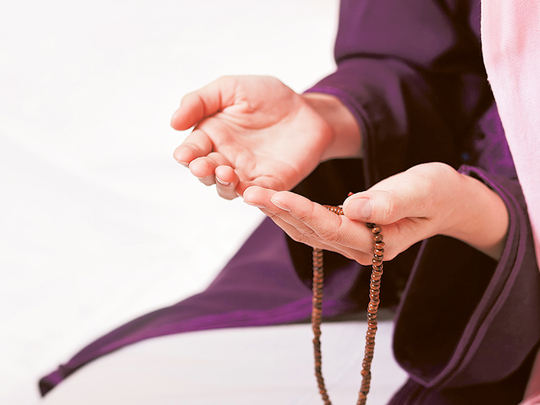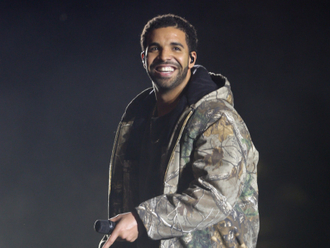
Dubai: Today is the first day of Ramadan, the holiest month of the Islamic lunar calendar, which lasts 29 or 30 days.
The arrival of the month of fasting brings sweeping changes to the UAE, part of the wider Muslim world. The lights at home come on before dawn, as worshippers wake up to have suhour, the traditional meal taken before the day’s fast begins.
Typically, working hours start later in the morning and also end earlier for Muslims and non-Muslims alike. Shortly before dusk, friends and family gather for iftar, the meal taken to end the day’s fast at sunset. After the long night prayers, shops and restaurants stay open till late, almost till dawn in many cases.
The month ends with the Eid Al Fitr festival celebrating the spiritual blessings amassed during Ramadan.
‘Ramadan’ meaning
The word ‘Ramadan’ comes from the Arabic root word of al ramad referring to intense heat and dryness. The word conveys the hardship of fasting as well as the ‘burning’ away of sins by this act of worship.
Dos and don’ts of fasting
Muslims who are ill or travelling are not required to fast. They can make up the missed fasting days after Ramadan. Women who are pregnant, breastfeeding or menstruating are also excused.
Fasting also enjoins giving up cursing, lying or backbiting, apart from abstaining from food and drink.
Using eye drops does not break the fast, nor does brushing the teeth.
It is recommended to have the predawn suhour meal, which helps endure hunger during the day
Ramadan guide for non-Muslims
Don’t eat, drink or smoke in public, or in the car, from dawn to sunset
Do join friends and colleagues for iftar, the sunset meal which ends the day’s fast
Don’t wear revealing clothes or play loud music
Do greet Muslims with the saying “Ramadan Kareem” or “Ramadan Mubarak” at the beginning of Ramadan
Don’t indulge in public displays of affection
Do visit public lectures or presentations explaining the significance of Ramadan
The Muslim calendar
Muslims follow a lunar calendar based on the movement of the moon. It is known as the Hijri year, named after the hijri or migration of Prophet Mohammad (PBUH) from Makkah to Madinah. The Islamic year has 12 months and is around 10 days shorter than the solar Gregorian year. This is why Ramadan, and other Hijri months, begin around 10 days earlier with respect to the Gregorian year. We are currently in the 1436 Hijri year, and today is day one of Ramadan, the ninth Hijri month.
Islamic months
1 Muharram
2 Safar
3 Rabi Al Awwal
4 Rabi Al Thani
5 Jumada Al Ula
6 Jumada Al Akhira
7 Rajab
8 Sha’aban
9 Ramadan
10 Shawwal
11 Dhu Al Qa’da
12 Dhu Al Hijja
Long, hot days this Ramadan
On average, the fasting hours will last around 15 hours each day this Ramadan, with dawn after 4am and sunset after 7pm in Dubai.
Ramadan 1: Dawn 4.09am, Sunset 7.14pm (Dubai time)
Ramadan 30: Dawn 4.19am, Sunset 7.13pm (Dubai time)
As Ramadan moves through the seasons, it has arrived in summer this year. It means the days – the period of fasting – will be long, as dawn begins early and sunset falls later in the day.
In fact, Ramadan – which comes around ten days ‘early’ with respect to the Gregorian calendar every year – will continue to begin in June or May for the next six years, until 2021.
Taraweeh night prayers
During Ramadan, special night prayers called Taraweeh are held in mosques. Voluntary in nature, they immediately follow the obligatory night prayer called Isha. Usually lasting an hour, they are held in units of prayer called rak’aa, until the number reaches eight or 20, depending on the mosque. There is no fixed number of rak’aa for Taraweeh. The prayer includes longer sections and chapters of the Quran. Taraweeh can also be held at home, in groups or individually.
The last 10 nights and the Night of Decree
In Ramadan, the last 10 nights are considered especially holy. Muslims believe the Quran was revealed to Prophet Mohammad (PBUH) in one of the last ten nights of the month. That night, the date of which is not specifically known, is called the Night of Decree. Muslims strive in worship in these final nights, hoping to ‘catch’ the Night of Decree, believing their sins will be erased and spiritual rewards added to their book of deeds.
Over 4,800 mosques in the UAE
More than 2,200 mosques in Abu Dhabi
Over 1,400 mosques in Dubai
Around 600 mosques in Sharjah












